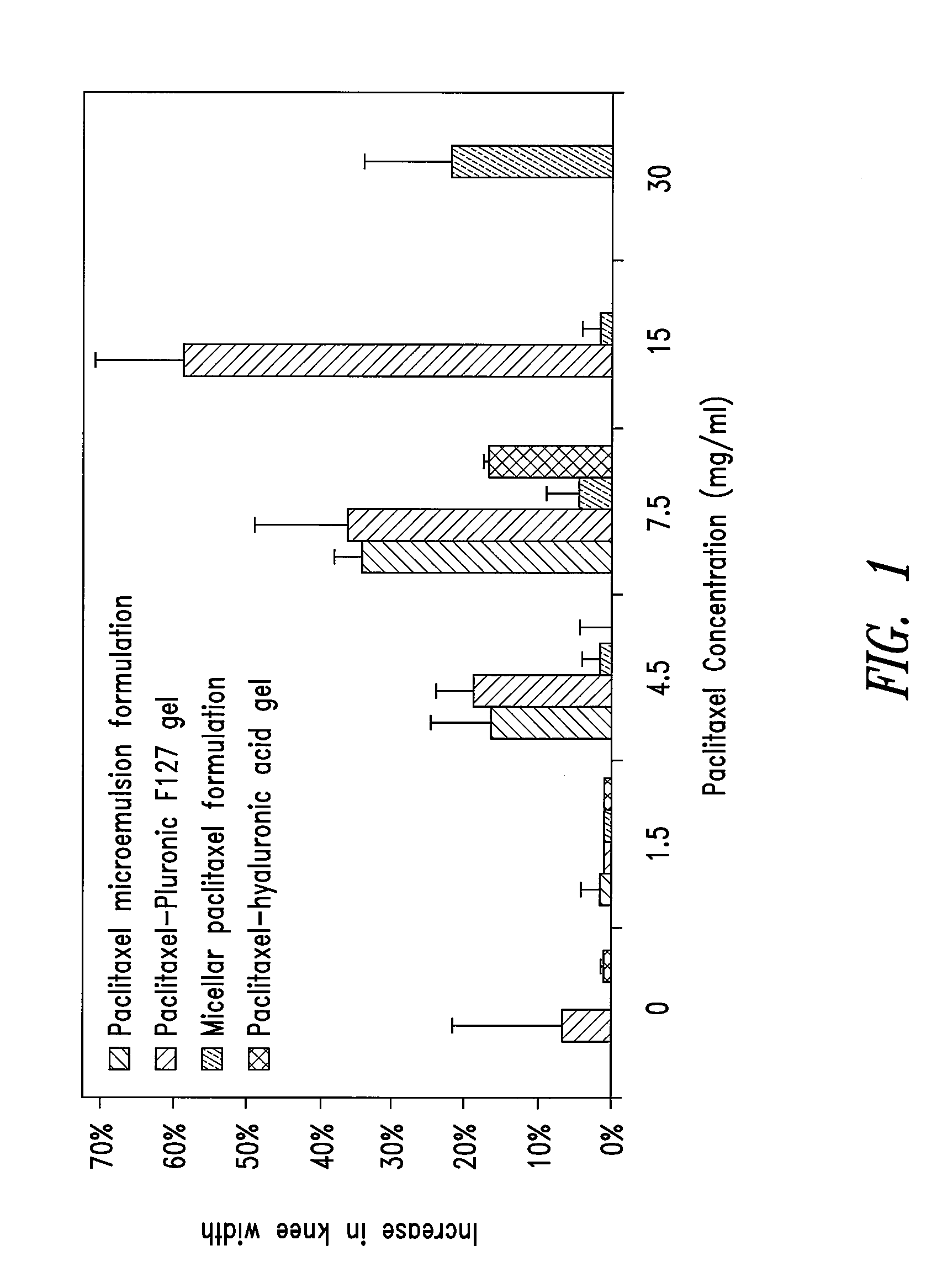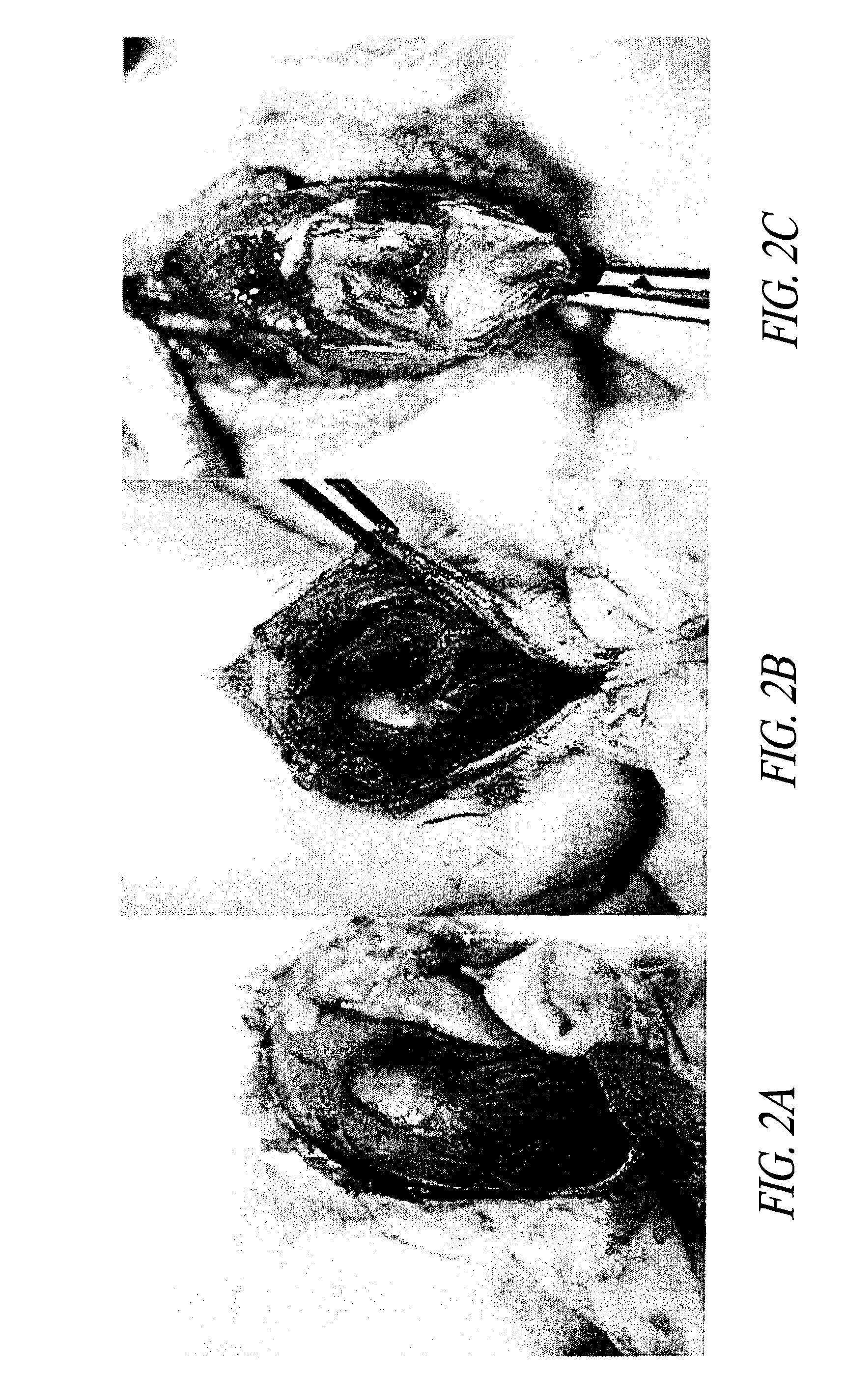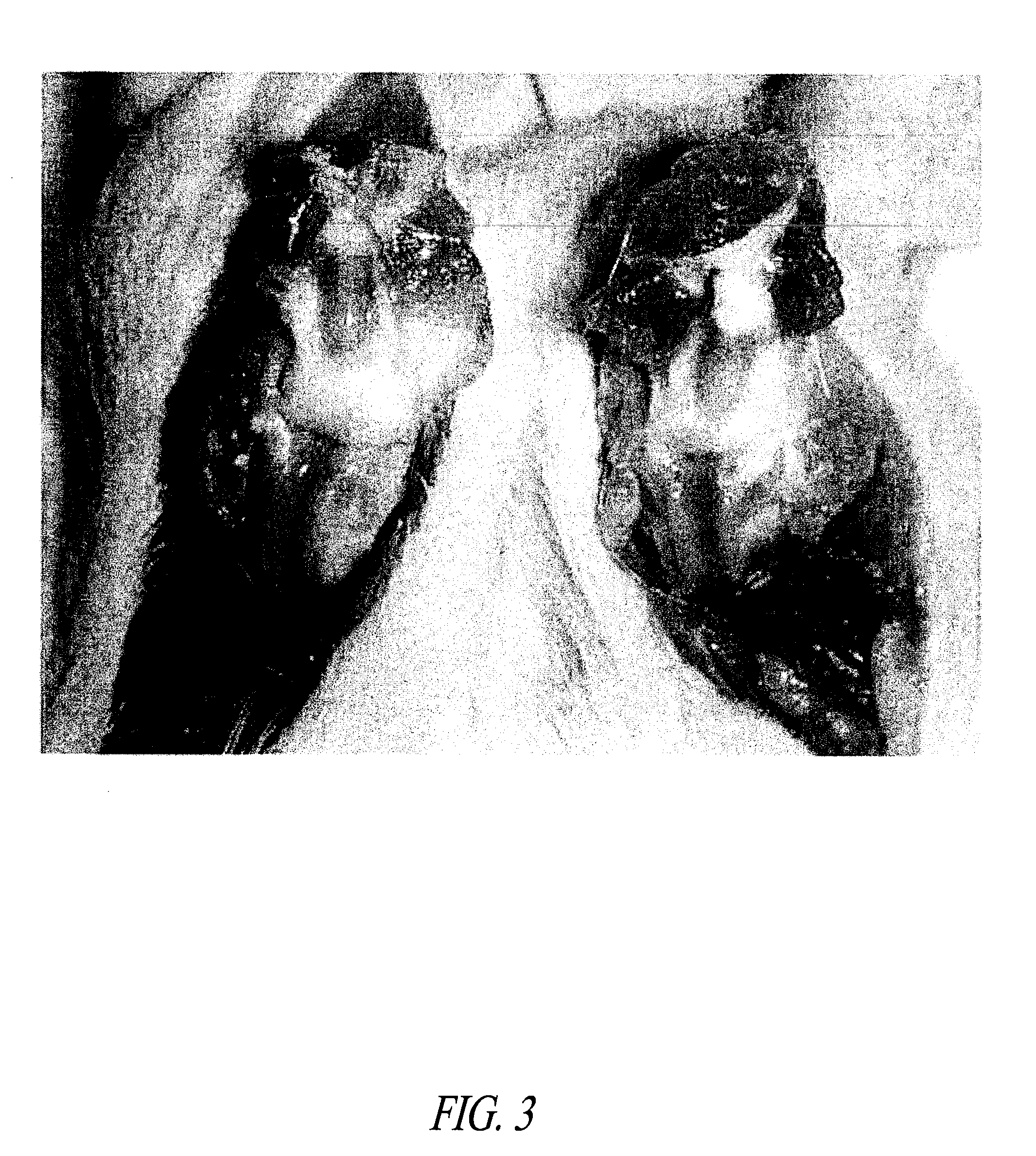Compositions and methods for treating contracture
a technology applied in the field of compositions and methods for treating contracture, can solve the problems of scarring, abnormal tissue in contracted joints, and reduced mobility of joints or extra-articular structures such as muscles, tendonoids, or ligaments, and achieve the effect of preventing or minimizing contracture formation and preventing the recurrence of scarring
- Summary
- Abstract
- Description
- Claims
- Application Information
AI Technical Summary
Benefits of technology
Problems solved by technology
Method used
Image
Examples
example 1
Production of a Micellar Carrier for Paclitaxel Formed as a Paclitaxel-Polymer Matrix
[0513]Polymer synthesis: A diblock copolymer used as a micellar carrier for paclitaxel was prepared as follows. A 60:40 methoxy polyethylene glycol (MePEG):poly(DL-lactide) diblock copolymer was prepared by combining 60 g of DL-lactide and 40 g of MePEG (MW=2,000 g / mol) in a round bottom glass flask containing a TEFLON-coated stir bar. The mixture was heated to 140° C. with stirring in a temperature controlled mineral oil bath until the components melted to form a homogeneous liquid. Then 0.1 g (or 0.5 g in some batches) of stannous 2-ethyl hexanoate was added to the molten mixture and the reaction was continued for 6 hours at 140° C. with continuous stirring. The reaction was terminated by cooling the product to ambient temperature. The product, 60:40 MePEG:poly (DL-lactide) diblock copolymer, was stored in sealed containers at 2-8° C. until use.
[0514]Preparation of Paclitaxel Polymer Matrix: a Mic...
example 2
Micellar Paclitaxel Dispersed in a Hyaluronic Acid Gel
[0516]A 2 g aliquot of paclitaxel-polymer matrix from Example 1 was dissolved in 100 ml water and the pH adjusted to between 6 and 8 by the addition of 1 M sodium hydroxide solution. Into a separate container, 1 mg of 1 MDa hyaluronic acid (Genzyme, Cambridge, Mass.) was added and then 1 ml of the pH adjusted paclitaxel solution was added with stirring to dissolve the hyaluronic acid. The result was a hyaluronic acid gel containing 10 mg / ml hyaluronic acid and 2 mg / ml paclitaxel. A second formulation was prepared in a similar manner to a concentration of 15 mg / ml paclitaxel by dissolving 15 g of micellar paclitaxel in 100 ml prior to pH adjustment. Using this method, by varying the paclitaxel content, formulations were prepared having paclitaxel concentrations between 1.5 and 30 mg / ml. Specifically, 1.5, 4.5, 7.5, 15 and 30 mg / ml were prepared.
example 3
Paclitaxel Dispersed in a Micellar Carrier in a Carrier Composed of a Fabric
[0517]A 2 g aliquot of paclitaxel-polymer matrix from Example 1 is dissolved in 100 ml water and the pH adjusted to between 6 and 8 by the addition of 1 M sodium hydroxide solution. The solution is used to dip carrier matrices, soaking the paclitaxel in micellar form into the carrier. A SEPRAFILM patch is dipped into the solution and allowed to soak in the liquid for 30 seconds. The patch is removed and gently rolled up and unrolled again and any liquid dripping from the fabric was allowed to come off, removing any excess liquid. Alternately, a pledget made of cotton is dipped in the same manner. The SEPRAFILM formulation is intended to be inserted into a patient without needing to withdrawn at a later time. The pledget formulation is intended to be inserted into the patient for instance adjacent to a tendon repair, and removed after a short period of time, for example 2 minutes. Using this method, by varyin...
PUM
| Property | Measurement | Unit |
|---|---|---|
| concentration | aaaaa | aaaaa |
| concentration | aaaaa | aaaaa |
| concentration | aaaaa | aaaaa |
Abstract
Description
Claims
Application Information
 Login to View More
Login to View More - R&D
- Intellectual Property
- Life Sciences
- Materials
- Tech Scout
- Unparalleled Data Quality
- Higher Quality Content
- 60% Fewer Hallucinations
Browse by: Latest US Patents, China's latest patents, Technical Efficacy Thesaurus, Application Domain, Technology Topic, Popular Technical Reports.
© 2025 PatSnap. All rights reserved.Legal|Privacy policy|Modern Slavery Act Transparency Statement|Sitemap|About US| Contact US: help@patsnap.com



